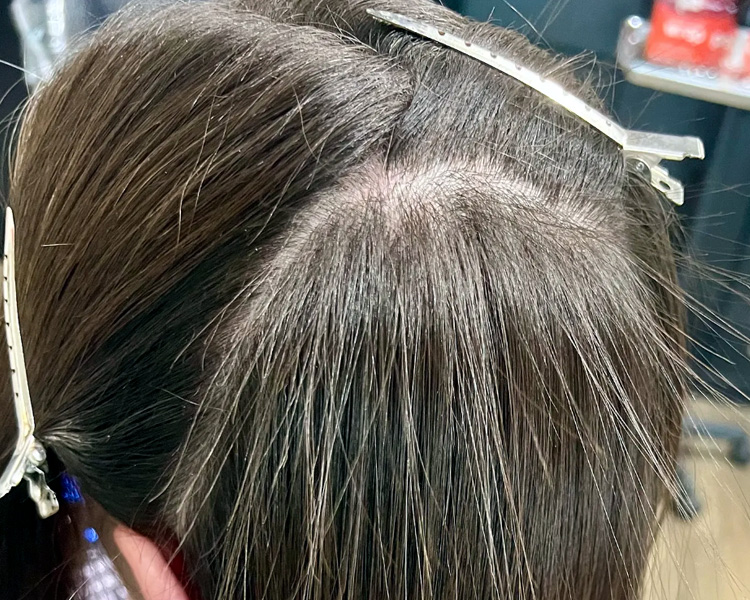Blood tests can be invaluable tools in identifying underlying issues contributing to hair thinning and loss in athletes and hard training individuals. Here are some key markers that healthcare professionals may assess in blood tests:
1. Hormone Levels: Hormonal imbalances, including elevated levels of testosterone and DHT, can contribute to hair loss. Blood tests can measure levels of these hormones and their derivatives to identify any abnormalities.
2. Iron Levels: Iron deficiency anemia is a common cause of hair loss. Blood tests can assess levels of ferritin, a protein that stores iron, as well as hemoglobin and hematocrit levels, which indicate overall iron status.
3. Thyroid Function: Thyroid disorders, such as hypothyroidism and hyperthyroidism, can disrupt the hair growth cycle and lead to hair loss. Blood tests can measure levels of thyroid-stimulating hormone (TSH), thyroxine (T4), and triiodothyronine (T3) to assess thyroid function.
4. Vitamin and Mineral Levels: Deficiencies in vitamins and minerals essential for hair health, such as vitamin D, vitamin B12, and zinc, can contribute to hair thinning and loss. Blood tests can evaluate levels of these nutrients to identify potential deficiencies.
5. Inflammatory Markers: Chronic inflammation can disrupt the hair growth cycle and contribute to hair loss. Blood tests may measure levels of inflammatory markers, such as C-reactive protein (CRP) and erythrocyte sedimentation rate (ESR), to assess overall inflammation in the body.
6. Liver and Kidney Function: Impaired liver and kidney function can affect nutrient metabolism and hormonal balance, potentially contributing to hair loss. Blood tests can evaluate liver enzymes, such as alanine aminotransferase (ALT) and aspartate aminotransferase (AST), as well as markers of kidney function, such as creatinine and blood urea nitrogen (BUN).
7. Autoimmune Markers: Autoimmune conditions, such as alopecia areata, can cause hair loss by triggering the immune system to attack hair follicles. Blood tests may assess levels of autoimmune markers, such as antinuclear antibodies (ANA) and anti-thyroid antibodies, to screen for autoimmune disorders.
By analyzing the results of blood tests, healthcare professionals can identify any underlying issues contributing to hair thinning and loss in athletes and hard training individuals. Based on these findings, personalized treatment plans can be developed to address the root causes of hair loss and promote scalp health and hair growth. It’s essential for individuals experiencing hair loss to consult with a healthcare professional or dermatologist for proper evaluation and management.
Ibana Villasenor
Hair Holistic Eco-Salon
www.hairholistic.com

The best place in Morocco

Enjoying views of Lisbon

